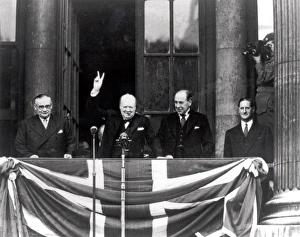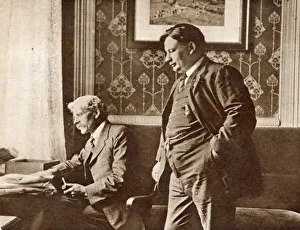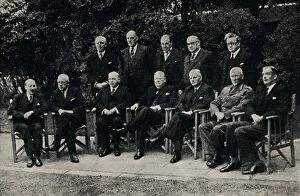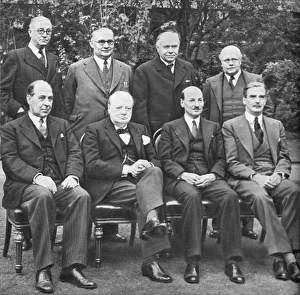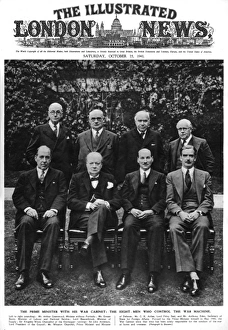Bevin Collection
Ernest Bevin, a prominent British Labour politician and trade union leader, was a man of great influence and significance in the political landscape of his time
All Professionally Made to Order for Quick Shipping
Ernest Bevin, a prominent British Labour politician and trade union leader, was a man of great influence and significance in the political landscape of his time. Known for his strong leadership skills and dedication to the working class, Bevin played an instrumental role in shaping Britain's history. Born in 1881, Bevin rose from humble beginnings to become one of the most respected figures in British politics. His determination and resilience were evident throughout his career, much like another iconic figure from that era - Winston Churchill. Bevin's passion for social justice led him to advocate for workers' rights tirelessly. He fought alongside dockers during their struggle for fair treatment and better working conditions, as depicted in images capturing him giving speeches at East Woolwich or standing with Ramsay Macdonald. His commitment extended beyond domestic affairs; as Foreign Secretary, he represented Britain on the international stage. Photographs show him visiting New York with his wife during this period, highlighting his diplomatic efforts during challenging times. During World War II, when women took over men's jobs due to wartime demands, Bevin recognized their contribution by ensuring equal opportunities. A powerful image shows women operating BBC control rooms as programs went on air in 1942 - a testament to Bevin's progressive mindset. In 1942, he joined forces with John G. Winant to support merchant seamen ashore - an act that demonstrated solidarity among leaders striving for justice amidst war-torn chaos. It also participated actively in important conferences such as the Imperial Conference held in London (May 1943), where global issues were discussed and decisions made that would shape post-war policies. His impact was not limited to wartime; even before becoming a politician himself, Bevin worked closely with influential figures like Harcourt Johnstone promoting export through eye-catching posters – showcasing his early involvement in economic matters. With all these accomplishments under his belt by 1933 alone – it is no wonder that Bevin's influence continued to grow.

